Obituary: Wilko Johnson
- Published
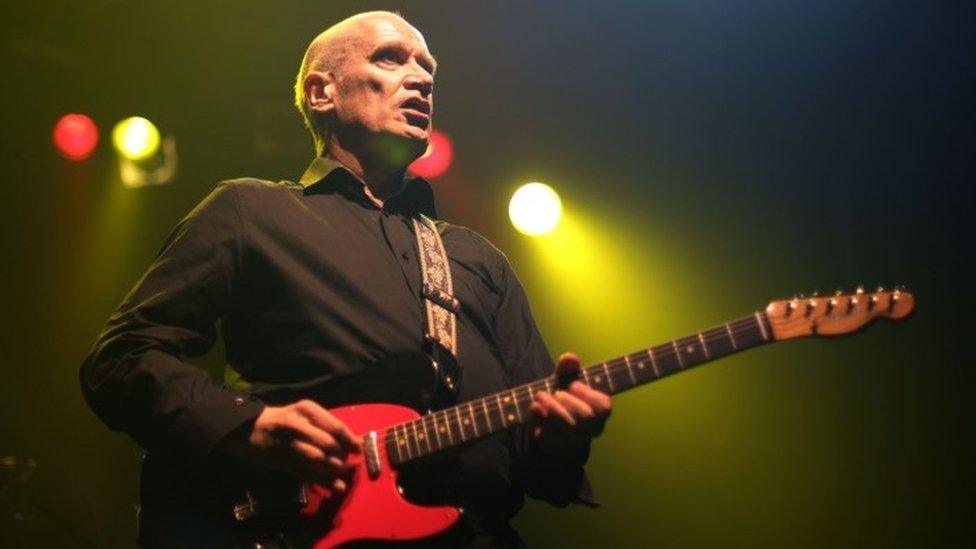
Wilko Johnson's choppy guitar style defined the sound of the band Dr Feelgood.
Once dubbed "Britain's best live band", the Feelgoods stripped music down to the bare essentials with their unique style of rhythm and blues.
They formed at a time when prog rock was in the ascendancy and their high-energy gigs paved the way for punk.
Johnson was ejected from the band in 1977 after a row, although avid fans spent the next four decades speculating about his return.
He later joined Ian Dury and the Blockheads, before embarking on a successful solo career. Johnson also appeared in the first two series of the fantasy TV series Game Of Thrones, playing the mute executioner Ser Ilyn Payne.
In 2013, he was diagnosed with terminal cancer and announced a farewell tour.
But two years later, he declared he was cancer-free, after doctors removed a 3kg tumour in an 11-hour operation.
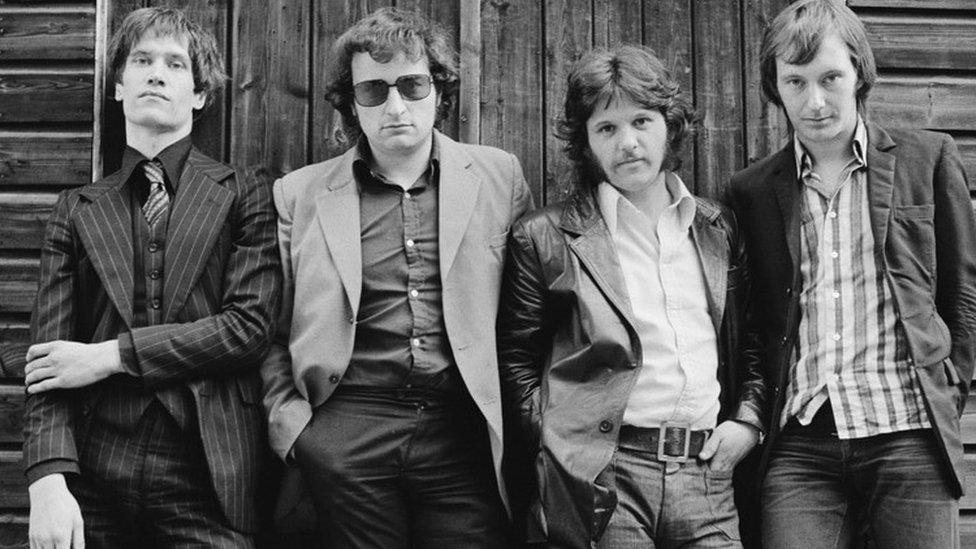
Dr Feelgood were the archetypal pub band
John Peter Wilkinson was born in Canvey Island, Essex, on 12 July 1947.
He attended the selective grammar Westcliff High School, Southend, before reading English language and literature at Newcastle University.
There, he developed a keen interest in Anglo-Saxon literature and Icelandic sagas.
"What can I say about this literature?" he once said. "It's really great and everyone should check it out."
He bought his first guitar when he was 18 and began to perfect the playing style for which he would become famous.
Like many of his generation, he took the hippy trail to India before returning to work for a brief spell as an English teacher.
Menacing presence
But music was his first love and he began playing with an outfit called the Pigboy Charlie Band.
The band changed their name to Dr Feelgood, an American slang term for a doctor willing to prescribe mind-altering drugs.
They cut their teeth on London's pub-rock scene, their menacing on-stage demeanour giving the impression of a bunch of Essex gangsters up in the Smoke for a rumble.
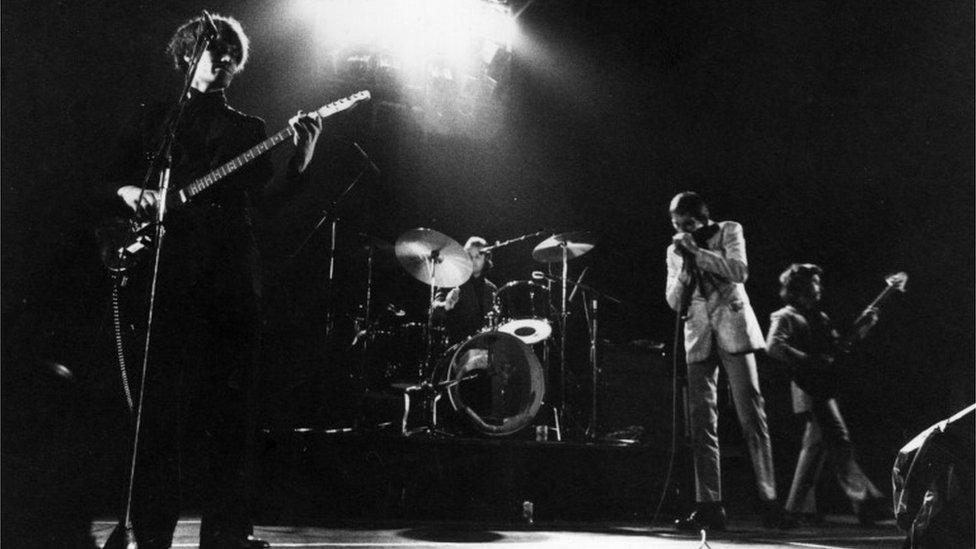
They adopted a menacing air on stage
A recording deal with United Artists came in 1974 and the Feelgoods quickly released their first single, Roxette, written by Johnson.
It defined what would become the familiar Feelgood sound: Singer Lee Brilleaux snarling into the microphone while a black-clad Johnson prowled around the stage, pulverising his guitar and affecting an eyeball-bulging stare.
That look was later to be seized on by Johnny Rotten of the Sex Pistols.
Blistering best
"I think punk took a lot of attitude from Dr Feelgood," Johnson later recalled.
His playing style, based on that of Mick Green, of Johnny Kidd & The Pirates, enabled him to play a mixture of lead and rhythm guitar at the same time.
The band recorded two studio albums, Down by the Jetty (1974) and Malpractice a year later.
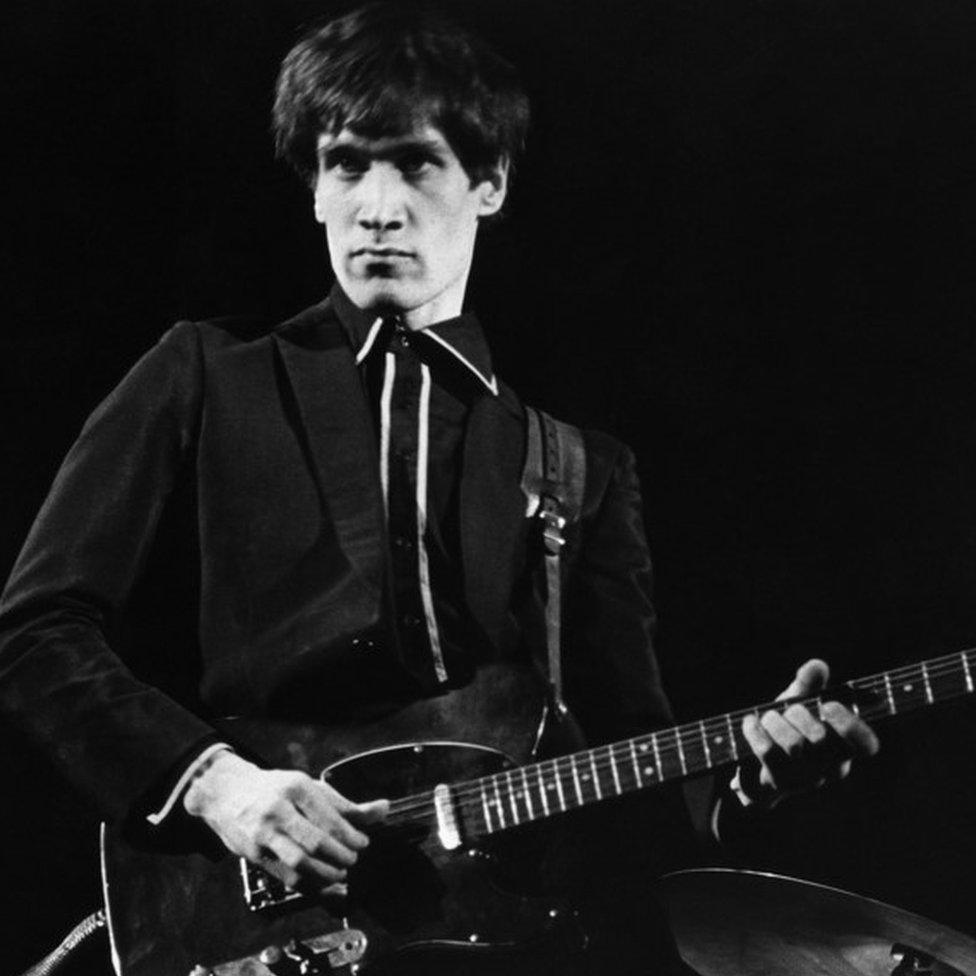
He prowled the stage with a menacing stare
But they were essentially at their blistering best on stage so there was little surprise when Stupidity, recorded live at gigs in Sheffield and Southend, reached the top of the UK album charts.
Johnson was to record just one more album with the Feelgoods, Sneakin' Suspicion, but his relationship with Brilleaux was becoming stormy.
He and the singer quarrelled over the album's track listing and Johnson and the band parted.
"I didn't leave," he insisted. "They threw me out and told the newspapers I had quit."
Abandoned
Over the following few years Johnson worked with various musicians described on his website as "of varying degrees of accomplishment and mixed moral character".
In 1980 he joined the Blockheads and played on Laughter, the last album Ian Dury made with his band.
However, Dury's increasingly erratic behaviour - fuelled by drugs and alcohol - led to rows with Johnson, although he co-wrote the album's only single, Superman's Big Sister.
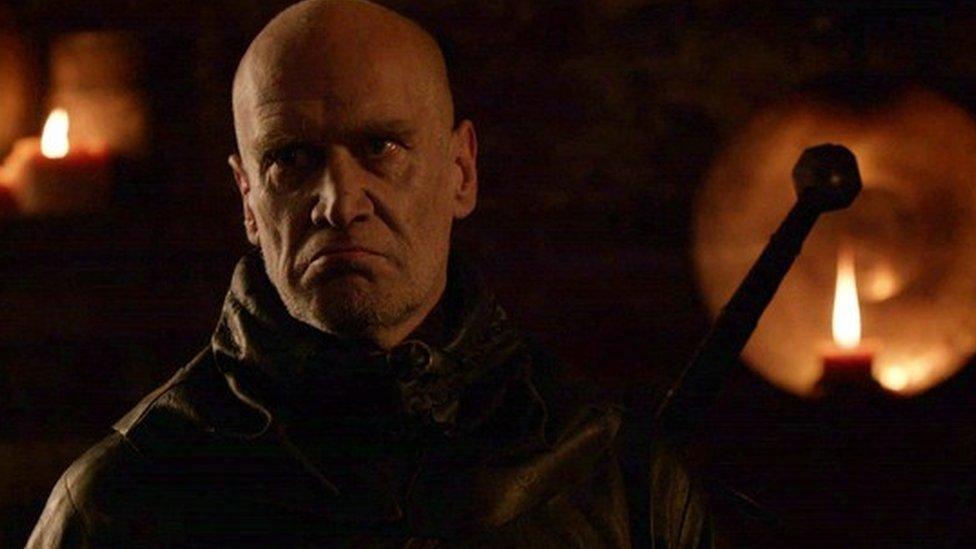
His role as Ser Ilyn in Game of Thrones gave him an appetite for acting
When Dury disbanded the Blockheads, Johnson resisted attempts by promoters to get him to form a new Dr Feelgood and instead continued with his Wilko Johnson Band.
For the ensuing three decades the outfit, with the odd line-up change, was seldom off the road.
They recorded a number of albums, none of which were commercially successful, but the band's natural habitat was on the stage.
Johnson's wife Irene, a former childhood sweetheart, died of cancer in 2004. It was a blow that led him to continual feelings of depression that he only managed to shake off when playing live.
Acting
In 2009 the documentary film-maker Julian Temple made Oil City Confidential, a profile of Johnson and the Feelgoods.
It contains one sequence from a local TV programme where a young Johnson, sporting long hair, harangues a group of politicians for ruining the environment of his native Canvey Island.
In 2012 his autobiography Looking Back At Me was published. It revealed his deep love of poetry and featured his own illustrations, which had never been seen in public.
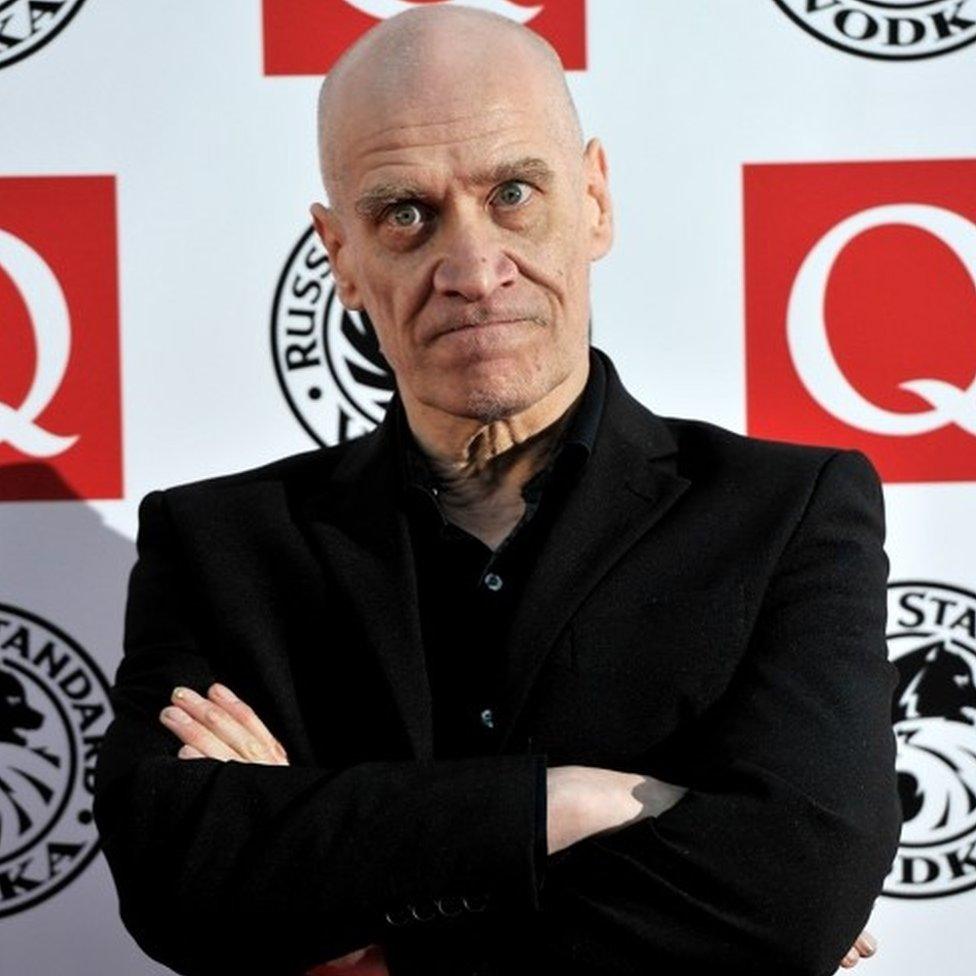
Through the years the look hardly changed
In January 2013 it was announced that Johnson had pancreatic cancer. He decided to refuse any chemotherapy so he could continue performing as long as possible.
He set off on what he described as the ultimate farewell tour having been given just 10 months to live, with Johnson himself joking that it would be embarrassing if the tour extended into 2014.
But the prognosis was pessimistic. Having recorded the album Going Back Home with The Who singer Roger Daltrey - "I thought that was going to be the last thing I ever did," - he underwent an 11-hour operation to remove a tumour and a number of internal organs.
When he appeared at the Q Awards in Oct 2014 he announced he was clear of cancer and that he was having to come to terms with the idea that his death was not imminent and that he was going to live on.
Johnson also told Radio 4's John Wilson that his brush with death had helped lift his depression.
"When I went in for the diagnosis and the doctor told me 'You've got cancer' it was quite plain it was an inoperable thing, there was nothing they could do," he said.
"We walked out of there and I felt an elation of spirit. You're walking along and suddenly you're vividly alive. You're looking at the trees and the sky and everything and it's just 'woah'.
"I am actually a miserable person. I've spent most of my life moping in depressions and things, but this has all lifted."
Having won what he called "extra time", the musician continued to tour up until his death.
Steve Howley, of Classic Rock magazine, said Dr Feelgood's confrontational style led directly to punk. He added: "Johnson is now recognised as one of the quintessential English guitar heroes."